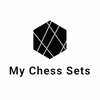Exploring Whether Chess is a Sport
The question of whether chess qualifies as a sport is a subject of ongoing debate. Chess, a classic game characterized by strategic thinking and mental rigor, has qualities that align with both traditional sports and intellectual exercises. This article will explore various perspectives and criteria to assess whether chess should indeed be considered a sport.
Defining Sports
Understanding what qualifies as a sport is crucial in analyzing chess's status. Sports are typically characterized by a set of common attributes including physical exertion, skill, competition, and a defined rule structure governed by an organization. Sports often require strategic thinking and mental fortitude, which are also critical elements in chess.
The Physical Element of Chess
One of the primary arguments against classifying chess as a sport is its lack of intense physical activity, which is a common component of sports like soccer, basketball, and swimming. However, proponents argue that chess involves physical endurance, especially in tournaments that can last for hours, requiring players to maintain high levels of concentration and mental agility. Furthermore, governing bodies such as the International Chess Federation have implemented anti-doping regulations similar to those in more physically demanding sports, recognizing that physical stamina and condition can influence performance.
The Case for Chess as a Sport: International Recognition
Chess has been recognized as a sport by the International Olympic Committee since 2000. Moreover, it is part of the Asian Games and other multi-sport events, which strengthens the argument for its status as a sport. The global organization, the International Chess Federation (FIDE), which regulates all international chess competitions, plays a role akin to those governing bodies in recognized sports, setting rules, and standards for competitive play.
Mental Rigor and Strategic Gameplay
Chess demands high levels of strategic thought, problem-solving, and foresight, much like traditional sports require tactical planning and in-game strategies. Chess players spend years mastering openings, middlegames, and endgames, similar to how athletes invest time honing their skills. The mental challenge and competitive nature of chess are comparable to the psychological aspects of sports competition, where mental toughness and game preparation play crucial roles.
Public Perception and Media Coverage
The perception of chess as a sport can vary significantly by culture and media representation. In some countries, top chess players are as celebrated as Olympic athletes, receiving extensive media coverage and national recognition. Moreover, the rise of online streaming platforms has transformed how people view and engage with chess, opening up opportunities for spectatorship and fan engagement akin to other sports.
Educational and Cognitive Benefits
Beyond the debate of whether chess is a sport, it is undeniable that the game offers considerable educational and cognitive benefits. Playing chess can enhance memory, improve problem-solving skills, and boost concentration. It also fosters decision-making skills and teaches the importance of planning and foresight. These benefits align with the attributes cultivated through sports, further blurring the lines between these domains.
Conclusion
Whether chess is a sport is a multifaceted question that depends on how one defines a sport. While it lacks the physical exertion of traditional sports, chess meets many other criteria, such as skill, competition, strategic thinking, and governance by an official body. Given its recognition by international sports organizations and its intellectual rigor, chess can be considered a sport in a broader sense of the definition. Regardless of its classification, chess undeniably requires a high level of dedication and mental acuity, paralleling many characteristics of acknowledged physical sports.
Explore our large collection of luxurious chess sets!